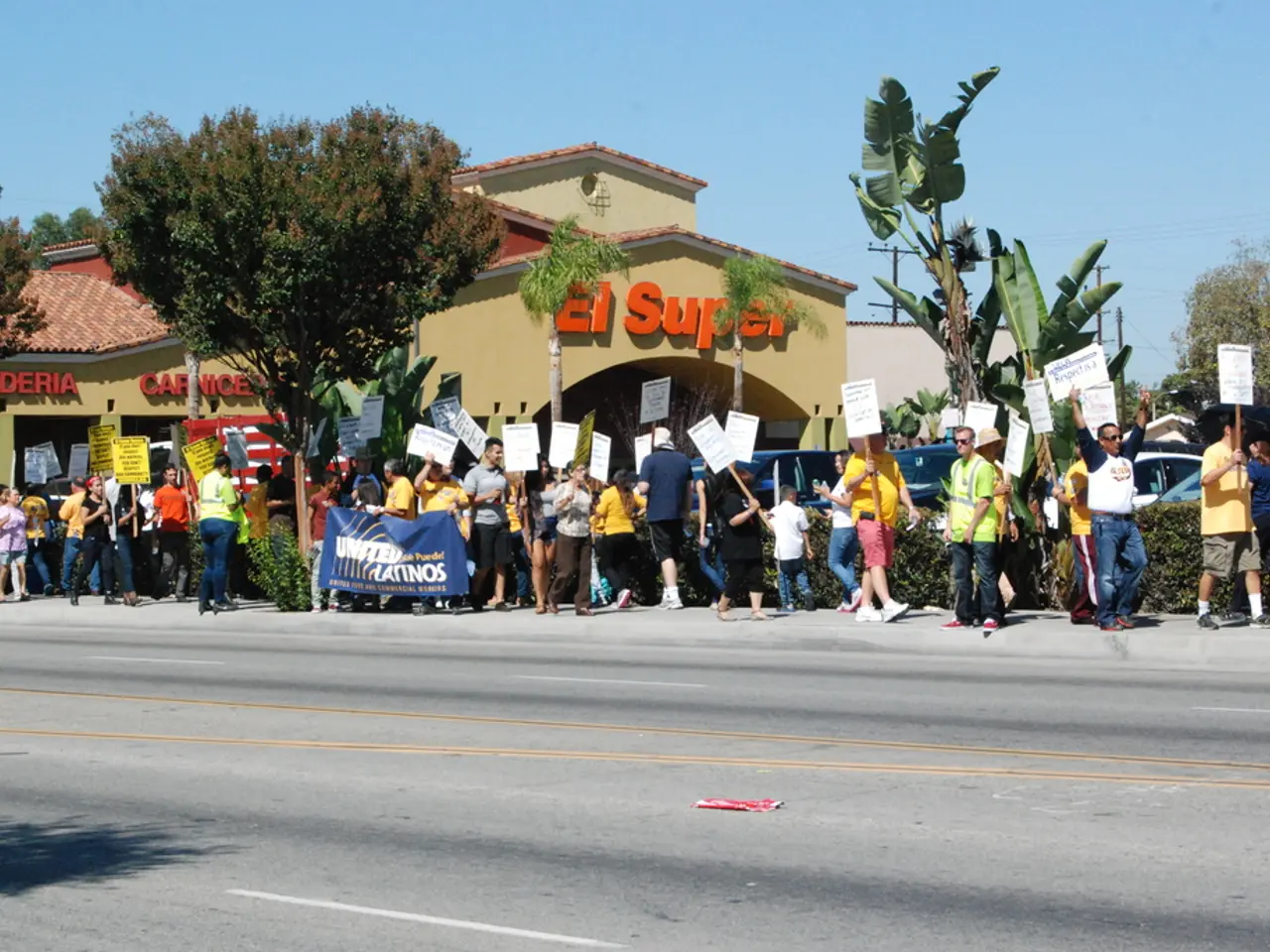Federal Court Decisions Challenging Trump Administration's Tariff Policies: An Overview of the Legal Pitfalls
The Trump Administration's use of the International Emergency Economic Powers Act (IEEPA) to impose tariffs on trading partners has faced significant legal challenges, with two federal trial courts ruling against the administration's authority to impose such sweeping tariffs.
In May 2021, a three-judge panel at the Court of International Trade (CIT) issued a decision, consolidating cases brought by several importers and state governments, ruling that the president's actions to impose tariffs under IEEPA are unlawful. The US District Court for the District of Columbia (DDC) also ruled that the IEEPA tariffs are unlawful, but on different grounds.
However, the U.S. Court of Appeals for the Federal Circuit temporarily reinstated the tariffs while considering the appeals, conducting a major review of the administration’s legal basis for imposing them. This appellate review is a critical test of the administration’s tariff agenda, with the potential for the Supreme Court to eventually weigh in.
The courts have questioned whether IEEPA, which is generally aimed at declaring emergencies and controlling economic activities related to actual threats, authorizes tariffs on almost every trading partner without a clear emergency justification. The legal uncertainty complicates the enforcement and legitimacy of these tariffs for importers, as the tariffs remain temporarily in place but their ultimate legality is unresolved, creating risks and compliance challenges for businesses.
Despite the litigation, the Trump Administration continues to act on its tariff policies, evidenced by ongoing executive orders modifying tariff rates. The Reciprocal Tariff Order imposed a 10% baseline tariff on all products from nearly all US trading partners and an additional country-specific reciprocal tariff on all products from 57 of those trading partners. The Fentanyl/Migration Tariff Orders, issued in February 2021, expanded the national emergency to include the threat to Americans' safety and security from an influx of illicit synthetic opioids into the United States from Canada, Mexico, and China, and imposed tariffs on products from these countries.
These changes indicate the administration’s intent to maintain and escalate tariffs regardless of pending judicial decisions. As a result, importers are required to continue paying tariffs as the decisions finding the IEEPA tariffs to be unlawful are currently stayed. If the CIT's nationwide injunction is ultimately affirmed, importers may be able to seek refunds of IEEPA tariffs already paid.
The broader impact is a sustained tension in trade policy, with legal challenges posing risks to the administration’s ability to maintain its tariff agenda long-term and creating uncertainty for international trade partners and U.S. businesses alike. WilmerHale is closely monitoring the 10 legal actions that have been filed in US federal courts challenging the IEEPA tariffs and the effect of these actions on the Trump Administration's tariff agenda.
The Administration insists that the IEEPA litigation will not affect these negotiations. However, the ultimate resolution, possibly by the Supreme Court, will be pivotal for importers and for the administration’s trade policy going forward. The Trump Administration continues to negotiate with trading partners ahead of the July 9 expiration of the suspension of the country-specific reciprocal tariff rates. The administration's use of IEEPA for tariffs remains a contentious issue, with the potential for significant implications for international trade.
- The ongoing litigation against the Trump Administration's use of IEEPA for tariffs, particularly the cases in the Court of International Trade and the US District Court for the District of Columbia, poses risks to the administration's ability to maintain its tariff agenda long-term and creates uncertainty in politics and general-news.
- The legal challenges, such as those surrounding the IEEPA tariffs, have extended beyond just trade policy, affecting crime-and-justice by complicating the enforcement and legitimacy of these tariffs for importers, leading to risks and compliance challenges for businesses.








